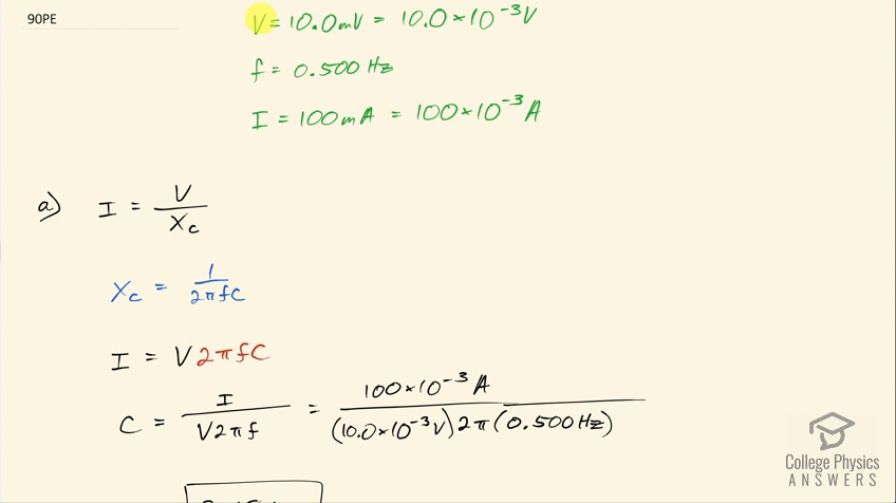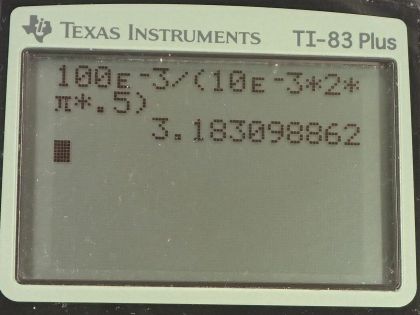Question
In a recording of voltages due to brain activity (an EEG), a 10.0 mV signal with a 0.500 Hz frequency is applied to a capacitor, producing a current of 100 mA. Resistance is negligible. (a) What is the capacitance? (b) What is unreasonable about this result? (c) Which assumption or premise is responsible?
Final Answer
- This is an enormously high capacitance.
- The frequency is too low. Capacitors have very high reactance at such low frequencies and wouldn't allow a 100 mA current with such a low voltage.
Solution video
OpenStax College Physics for AP® Courses, Chapter 23, Problem 90 (Problems & Exercises)

vote with a rating of
votes with an average rating of
.
Calculator Screenshots
Video Transcript
This is College Physics Answers with Shaun Dychko. The electroencephalograph signal from this patient's brain is a potential of 10.0 millivolts and a frequency of 0.500 hertz and when that signal is connected to a capacitor, the current in that circuit is 100 milliamps, which is 100 times 10 to the minus 3 amps and the question is what is the capacitance then of the capacitor that it's been connected to? So current is voltage divided by capacitive reactance and our formula for the reactance is 1 over 2π times frequency times capacitance. Now when dividing by this fraction, I am going to instead multiply by its reciprocal so that's why we have V times 2πfC here—this is the reciprocal of 1 over 2πfC— and so dividing by this fraction is the same as multiplying by this reciprocal. We are gonna solve this for C by dividing both sides by V2πf and the capacitance then is the current divided by the voltage times 2π times the frequency. So that's 100 times 10 to the minus 3 amps divided by 10.0 times 10 to the minus 3 volts times 2π times 0.500 hertz and that is 3.18 farads. Now 3.18 doesn't seem like a big number in terms of just numbers in general but when it has units of farads, it's actually an enormously high number— that's unrealistically high— and probably the thing here that is unrealistic is this frequency; that frequency is too low to have such a high current for this rather low voltage. So probably the frequency is too low or maybe the current is too high.
